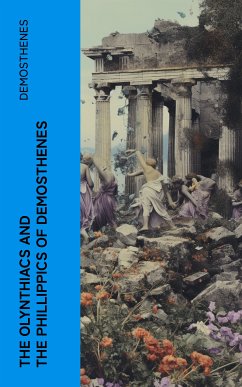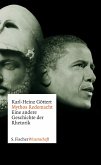e-artnow Publishing presents to you this special edition of "The Olynthiacs and the Phillippics of Demosthenes" (Literally translated with notes) by Demosthenes. e-artnow Publishing considers every written word to be a legacy of humankind. Every e-artnow book has been carefully reproduced for republishing in a new modern format. The books are available in print, as well as ebooks. e-artnow hopes you will treat this work with the acknowledgment and passion it deserves as a classic of world literature.
Dieser Download kann aus rechtlichen Gründen nur mit Rechnungsadresse in A, B, BG, CY, CZ, D, DK, EW, E, FIN, F, GR, H, IRL, I, LT, L, LR, M, NL, PL, P, R, S, SLO, SK ausgeliefert werden.









